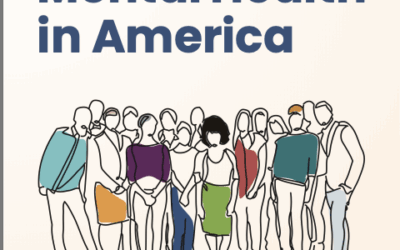
Commonwealth of Virginia
Office of Governor Terry McAuliffe
FOR IMMEDIATE RELEASE
Date: December 11, 2017
Office of the Governor
Contact: Brian Coy
Email: Brian.Coy@governor.virginia.gov
Governor McAuliffe Announces Opioid and Mental Health Budget Actions
~ Biennial budget invests $76 million to combat the opioid epidemic and improve behavioral health treatment ~
RICHMOND – Governor Terry McAuliffe today announced that his 2019-2020 biennial budget will include $76 million to help combat the opioid epidemic and improve behavioral health treatment.
The proposed funding will improve behavioral health services through community services boards; expand access to drug courts; establish residential treatment programs for non-violent offenders; hire more parole and probation officers; and pay for six additional forensic scientists to test substances. It also expands access to medically-assisted treatment for people with opioid addictions.
“During my term as governor, our team has worked hard to make Virginia a leader in fighting the opioid epidemic that is raging in communities across Virginia and the entire country,” said Governor McAuliffe. “I have also worked to bring our behavioral health services into the 21st century by investing in more community-based services, while still recognizing the need for bed space in state facilities. Addiction and mental illness are diseases, not moral failings, and these investments will continue to improve our behavioral health services to treat Virginians who need help.”
The Governor’s budget proposals build on the current budget’s investments in the Department of Behavioral Health and Developmental Services’ STEP-VA program that move the state’s 40 Community Service Boards (CSB) toward a system of uniform services. The proposed budget will include nearly $12 million to bring remaining CSBs on board with same-day access, an initiative that means everyone who walks into a CSB gets a screening and evaluation that day. The budget also includes more than $11 million to help CSB outpatient clinics provide primary care screenings for clients.
The budget would also ease census pressures on state behavioral health facilities by providing funds to assist in discharging people from state hospitals, and resources to support the expansion of Western State Hospital.
“In my eight years as Secretary of Health and Human Resources, I have overseen the beginnings of a transformation in our behavioral health services, as we shift the focus from state institutions to community treatment,” said Secretary of Health and Human Resources Dr. Bill Hazel. “These budget actions will help further that shift, while improving our ability to provide opioid addiction treatment.”
Governor McAuliffe’s budget also acknowledges the increasing role of corrections facilities in behavioral health treatment. While jails and prisons are not hospitals, the reality is that there are people with substance abuse and mental health problems who are in these facilities and need treatment. The budget provides resources for specialized units for offenders with serious mental illness, expansion of mental health court dockets and drug courts, and to establish a residential treatment program for non-violent offenders with a history of opioid drug abuse.
“We know that improving behavioral health treatment will help reduce recidivism for offenders whose encounters with the criminal justice system have roots in their addictions or mental illness,” said Secretary of Public Safety and Homeland Security Brian Moran. “While our jails are not treatment facilities, these budget actions recognize the reality that we must treat people where they are and help them return successfully to their communities.”
Gov. McAuliffe announced his budget investments at the final meeting of the Governor’s Executive Leadership Team on Opioids and Addiction in Richmond. Led by Secretaries Hazel and Moran, this group grew out of the Governor’s Task Force on Prescription Drug and Heroin Abuse, established by Governor McAuliffe in 2014 to help find ways to combat the growing opioid epidemic.
Additional information on Governor McAuliffe’s budget actions on opioids and behavioral health:
Opioids (Total $18 million)
– Replace grant funds for MAT with general funds: $10 million
– Support Permanent Supportive Housing for pregnant women with substance abuse disorder: $2.5 million
– Provide funding to expand drug courts: $800,000
– Establish residential opioid treatment programs for offenders. The first opiate treatment program will be established at Cold Springs Detention and Diversion Center in Augusta County: $877,872
– Increase probation and parole officers: $2.3 million
– Funds six additional controlled substances forensic scientist positions and provides for overtime funding for existing scientists in 2019 to help address the case backlog in this section: $1.3 million
– Provide nongeneral funds and two positions for drug court evaluation and monitoring: $350,642
Mental Health (Total $57.8 million)
– Expand supportive housing for adults with serious mental illness: $4.6 million
– Support needed community services as a result of mental health facility census: $4.8 million
– Provides funds to implement Primary Care Screening services at all 40 CSBs in Virginia: $11.2 million
– Provides funds to implement Same Day Access at CSBs. CSBs will have same day access capacity to screen an individual’s behavioral health needs face to face or telephonically. Eighteen CSBs received funding in FY 2018. These funds, combined with the funds at DMAS, will provide similar funding for the remaining 22 CSBs: $11.8 million
– Complete Implementation of Same Day Access-STEP VA (DMAS): $6.4 million
– Funding for DAP for approximately 80-90 individuals currently on the extraordinary barriers to discharge list at state mental health facilities. These funds are phased in the first year: $6.9 million
– Funds the costs of positions and the needed non personnel resources to support the 56 bed expansion at Western State Hospital: $5.6 million
– Provides funds to Catawba and Piedmont Geriatric hospitals to offset the loss of Medicaid Disproportionate Share payments: $2.2 million
– Establish specialized programs for counseling veterans: $447,900
– Expand mental health court dockets: $1 million
– Funds programs and additional personnel to treat seriously mentally ill offenders in secure settings. The specialized units will be established in River North, Marion, and Wallens Ridge Correctional Centers: $2.9 million
Charlotte Gomer
Assistant Communications Director
Office of Governor Terence R. McAuliffe



